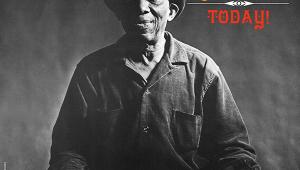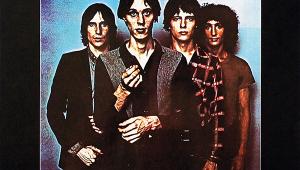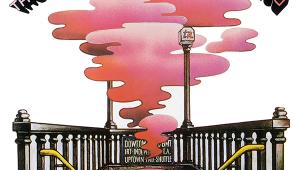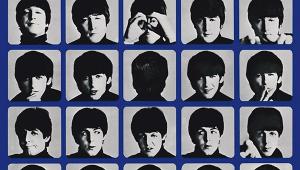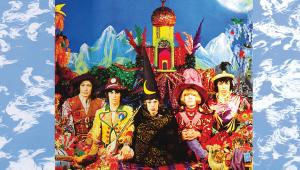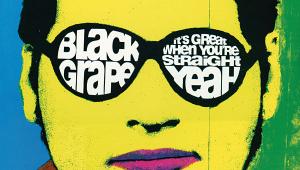Sly And The Family Stone: Anthology
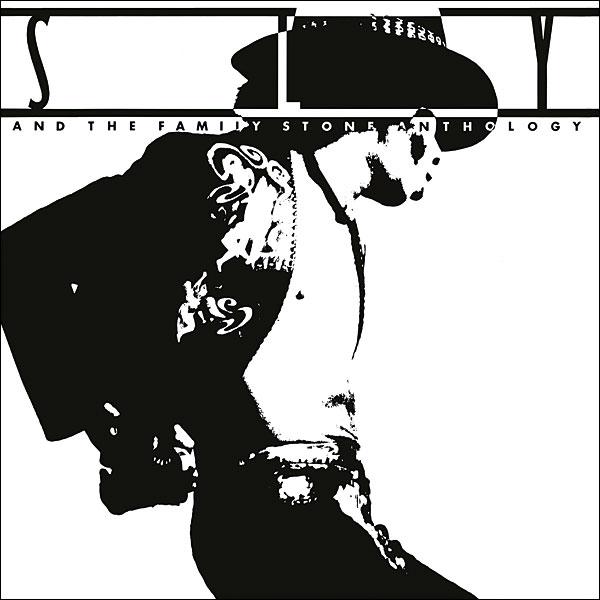
My friends and I, we were suit-and-tie guys...' This is Darryl L Lewis speaking. Don't worry, it's unlikely you'll have heard of Darryl. He's one of the people that musician and record producer Questlove invited into the edit suite when assembling the footage for Summer Of Soul, the film he created in 2021 documenting the 1969 Harlem Cultural Festival, which took place on six Sundays between June the 29th and August the 24th at Mount Morris Park (now Marcus Garvey Park) in Harlem, NYC.
Ministry Of Fun
The footage had been languishing unseen in a basement so when Darryl got to watch it, it was for the first time since he'd actually attended the event as a young teen over 50 years ago. The film is amazing, the performances never short of stunning. There's Nina Simone, The Chambers Brothers, Stevie Wonder, The Staples Singers, Mahalia Jackson, The 5th Dimension... But what's prompted Darryl's grinning suit-and-tie confession is watching the kitschy syncopated dance moves of Gladys Knights' Pips and David Ruffin.
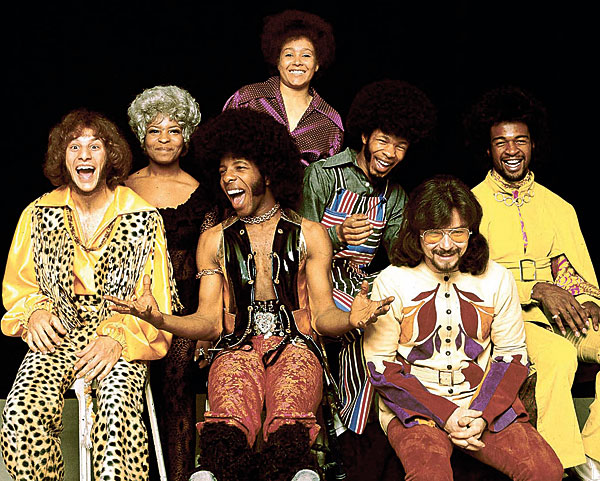
'We couldn't sing, he chuckles, 'we couldn't do anything, but we thought we could dance, we had all the moves down...'
Brilliant as they are, though, it's neither Ms Knight nor Mr Ruffin we're here to eulogise. It's Sly And The Family Stone whose set in the Summer Of Soul movie is the absolute crowning glory. Historians of popular music tend to heap so many superlatives on Sly's band that it's become easy to take their place in the pantheon of greats for granted. Re-listening, thanks to the release of Anthology, confirms all the plaudits and then some. As another commentator in the SOS movie so aptly puts it: 'This is clearly a band with an evangelical sense of their church of psychedelic soul. It's the Ministry Of Fun.'
We are generally not in the habit of covering 'Best Of's in this feature but Anthology, first released in 1981, is such a peerless collection that it would be remiss of us not to recommend it to anyone who isn't familiar with the wondrous Family Stone, and even if you're a Sly aficionado and have all the ground-breaking, mind-blowing albums, this compilation serves as a splendid playlist of essential tracks. In fact – and I do literally mean in fact – there isn't a single track out of the 20 here that falls short of anywhere in the region of fantastic.
Everyone's A Star
Whether it's the good-timey singles 'Dance To The Music', 'I Wanna Take You Higher' and 'Hot Fun In The Summertime', or the harder, funkier 'Thank You for Talkin' To Me Africa', its blueprint 'Thank You (Falettinme Be Mice Elf Agin)', or the sparse, vocoder-drenched freak out 'Don't Call Me...', these are full-on clarion calls for positivity.
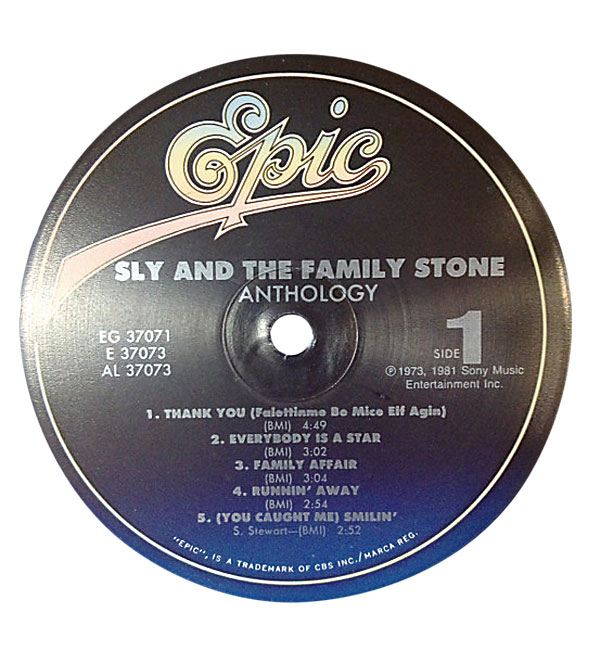
Furthermore, from the heartfelt plea for generational understanding of 'Family Affair', to 'Everyday People's hymn to racial harmony ('There is a yellow one that won't/Accept the black one/That won't accept the red one/That won't accept the white one/Different strokes for different folks…') or the does-what-it-says-on-the-tin little beauties 'You Can Make It If You Try' and 'Everyone's A Star', there's nothing particularly complex in these messages. Another track's title? 'Sing A Simple Song'.
Notwithstanding the sonic and technical innovations where the feel and vibe take precedence over perfection or precision, these are grown-up nursery rhymes, deliberately created as la-di-da ear worms, singsongs, communal rejoicings. They neither acknowledge nor accept any musical parameters and hold no truck with prejudice of any kind.
Walk The Walk
Sly (real name Sylvester) was a prodigious musician, brought up in the church, who landed in San Francisco to DJ during the Haight-Ashbury hippie love-in years and therefore knew what turned people on. And he walked it like he talked it. The group at its peak was multiracial and pan-sexual, comprised of Sly on pretty much everything, his brother Freddie on guitar and sister Rose on keyboards, Cynthia Robinson on keyboards, Jerry Martini on sax, Larry Graham on bass, Greg Errico on drums and all and sundry on vocals and shout-outs. In other words, a living, breathing example in the studio, on stage and on the airwaves of what others were debating and fighting over. Unity. No ifs or buts, they were a revolution.
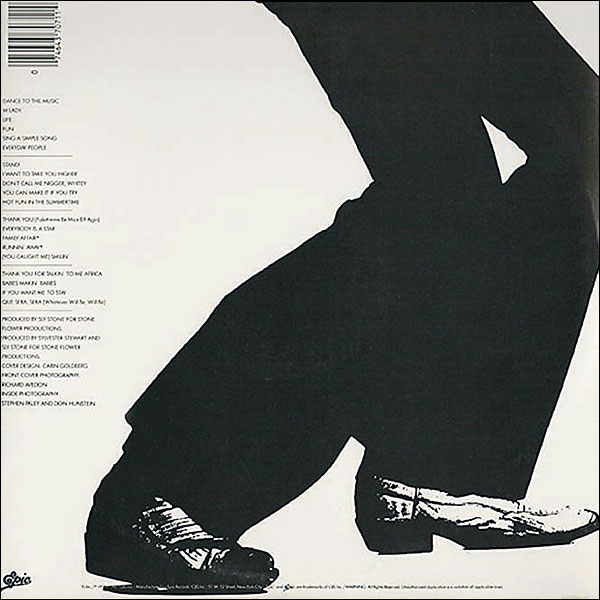
Back to Darryl: 'When you saw a black group, what you expected to see was, generally speaking, all men, all dressed in matching suits, ready before they ever hit the stage to perform. He [the MC] introduced Sly and the first thing that happens to the audience is the feeling of apprehension because just because they introduced Sly doesn't mean he's there. It also doesn't mean he's coming out immediately... [But] as soon as everything was kickin', it was on!'
Circus Of Sound And Vision
Sly And The Family Stone were one of the first groups to do what they wanted, when they wanted. No rules applied. Later, sadly, not even their own – cocaine saw to that. But in their absolute pomp there was, and never has been since, anything to touch them. Fringe jackets, pimp hats, wraparound shades, magnificent afros, beads and bells… they were a hallucinatory carnival of pride, an exotic, down-home circus of sound and vision. They made their own time and existed within it.
Another commentator on Summer Of Soul calls the group 'transformative'. The party had come to town and everyone was invited. The freedom party, that is. When Sly was in the house, there was, as their 1971 LP acclaimed, a riot goin' on.
As said, music writers have lauded Sly And The Family Stone for their influence on the likes of Prince, Miles Davis, Bob Marley, Michael Jackson, George Clinton, Tupac Shakur, Dr. Dre, Beyoncé, Lenny Kravitz, Frank Ocean… blimey, just about everyone who's any good. As one of the scribblers put it: 'There are two types of black music: black music before Sly Stone, and black music after Sly Stone'.
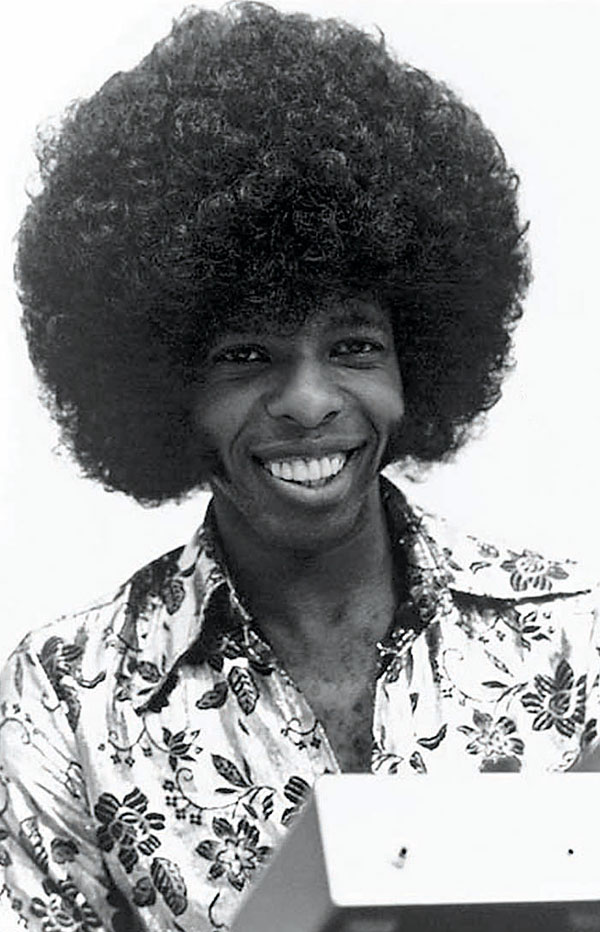
Can't argue with that but I prefer our friend Darryl's pay-off line in the movie. 'My group of guys, we were suit-and-tie guys. Then we saw Sly and we were no longer suit-and-tie guys. The change,' he says with a chuckle, 'was in effect'.
Re-Release Verdict
First released by Epic on double LP and single cassette in 1981, and featuring 20 songs from Sly And The Family Stone's late '60s/early '70s peak, the compilation album Anthology is now available on 180g vinyl from Netherlands-based audiophile label Music On Vinyl [MOVLP3394C]. Retaining the original artwork and tracklisting, this limited edition reissue of 3000 individually numbered copies comes with a gatefold sleeve for its two pink-coloured vinyl LPs. HFN

